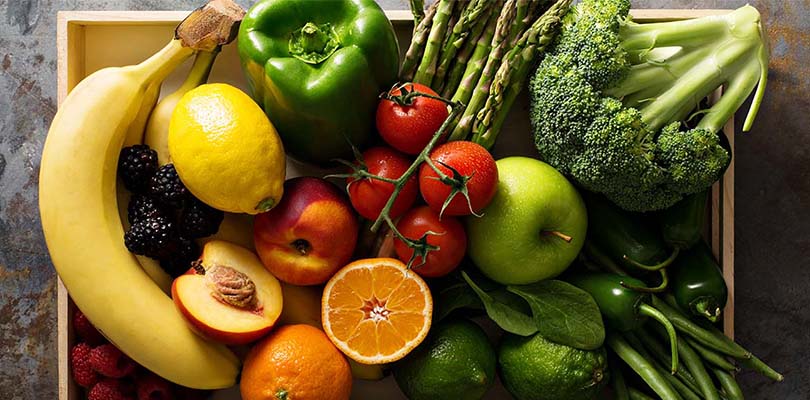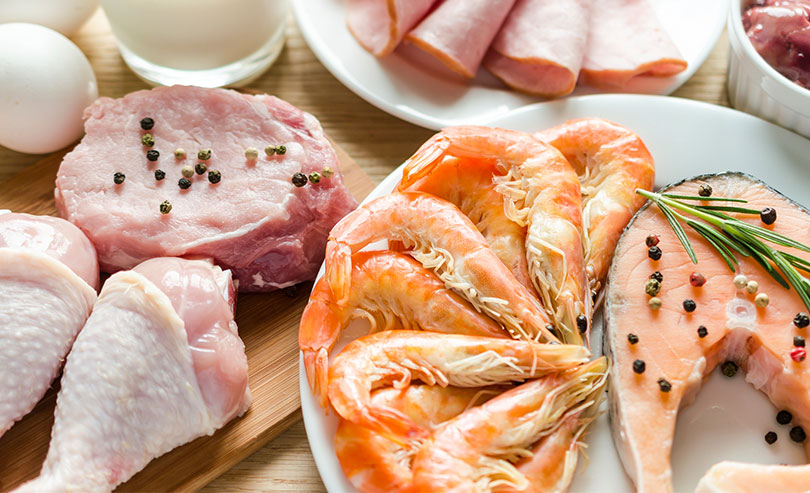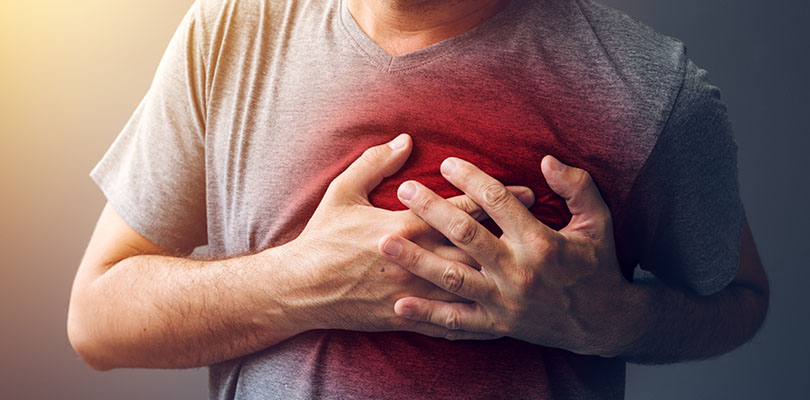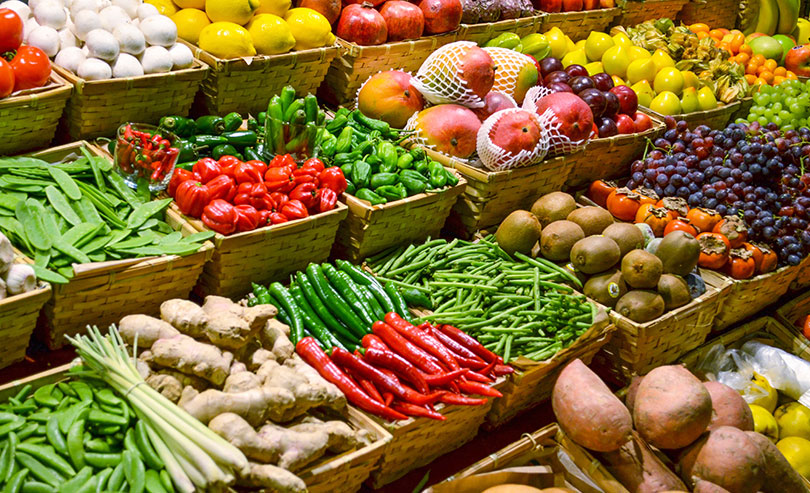IBS Constipation Diet 101
If you suffer from irritable bowel syndrome (IBS) you know just how uncomfortable the symptoms can be. When you’re unable to control your symptoms, you may start to experience mood disorders such as depression and anxiety, and your quality of life can be dramatically affected resulting in difficulties with your personal and professional relationships.
Learning ways to manage your symptoms is the best way that you can take control of this disorder and enjoy life to the fullest.
What Is Irritable Bowel Syndrome With Constipation?
One of the symptoms of irritable bowel syndrome is constipation (IBS-C), which is often characterized by a change in either the consistency or frequency of bowel movements that may be chronic or recurrent.
IBS-C is typically defined as abdominal pain with infrequent, hard pellet-like bowel movements. Additionally, an individual suffering with IBS-C may have difficulty or straining with bowel movements, have a feeling of being unable to completely empty their bowels, or have the sensation of needing to have a bowel movement but not being able to go.
The cause of IBS-C remains unknown, however, it is believed that there are various factors involved, including:
- Sensitive nerves
- Increased fluid absorption in the colon
- Decreased muscle movement in the colon
- Miscommunication between the brain and bowel
Triggers for IBS-C Symptoms
Various things including certain foods, stress, and hormones can trigger IBS symptoms. While the exact role of food intolerance or allergy isn’t completely understood, many individuals with IBS experience increased symptoms after consuming certain foods and/or drinks.
In some cases, symptoms can be managed with lifestyle and diet changes, while in more severe cases symptoms need to be treated with counseling and medication.
Using a Food Journal to Track IBS-C Symptoms
In order to determine what foods trigger your symptoms, keep a symptom journal outlining the food that you have consumed, as well as the quantity, and any symptoms that you experience.
After tracking your diet and symptoms for a period of time, look for patterns to see if certain foods make your symptoms better or worse.
Once you have identified a food trigger, cut back or eliminate it and see if your symptoms improve. It’s important only to eliminate one food at a time, because if you cut out multiple foods, you won’t know which food may have been triggering your symptoms.
Irritable Bowel Constipation Diet
If you have IBS that results in constipation, consuming a balanced diet and avoiding certain foods that trigger symptoms is important for controlling your symptoms and improving your quality of life.
There is no set diet for every person that has IBS-C; often it takes a little trial and error to figure out what foods trigger your symptoms and which ones help to relieve your symptoms. However, there are common foods that help and those that trigger symptoms of IBS-C, we’ll outline some of these foods below.
Foods to Include in Your IBS Constipation Diet
Insoluble Fiber
Insoluble fiber is essential if you suffer from IBS-C because it brings water into the digestive tract and helps to soften stool, thereby easing constipation.
The Academy of Nutrition and Dietetics recommends that women consume 25 grams of fiber, and men consume 38 grams. Individuals over the age of 50 may need slightly less – 21 grams for women and 30 grams for men.
When you start to add more high fiber foods into your diet, make sure that you do it gradually adding a little bit at a time, about an extra 2 to 3 grams per day, as suddenly increasing consumption can cause gas and diarrhea in some individuals.
Examples of insoluble fiber food options:
- Whole grain breads and cereals
- Rolled oats
- Brown rice
- Flaxseed
- Veggies including zucchini, broccoli, cauliflower and cabbage
- Fruits with skin including grapes, pears, and apples
Foods High in Sorbitol
Foods high in sorbitol act as laxatives and can relieve symptoms of IBS-C.
Examples of high sorbitol food options:
- Prunes
- Prune juice
Again, keep in mind that consumption of too much can result in gas, bloating, abdominal cramping and diarrhea in some individuals.
Water
Ensure that you’re also consuming enough water each day to help loosen bowels and ease constipation.
How to eat safe foods for IBS that will likely improve symptoms as well as understanding FODMAPs and what not to eat.
Foods to Avoid in Your IBS Constipation Diet
Highly Refined and Processed Foods
While these foods fill you up quickly, they lack the vitamins, minerals, and fiber that you need to have healthy bowel movements.
Examples of highly refined foods:
- White bread
- Chips
- Pastries
- Cookies
Dairy
Dairy should be avoided because it has a high-fat content and also contains lactose. Many IBS sufferers are lactose intolerant, meaning that they can’t digest the lactose found in milk. If unabsorbed lactose passes into the gut and is fermented by bacteria, symptoms such as bloating and diarrhea can result.
Examples of foods containing dairy:
- Cheese
- Milk
The good news is that there are many lactose-free and low-fat dairy options, as well as non-dairy alternatives such as rice, almond, and soy milk that many individuals with IBS can safely consume.
Caffeine
Caffeine, particularly coffee, stimulates gastric acid secretion and bowel activity. These stimulating qualities can worsen symptoms of IBS-C.
Examples of foods containing caffeine:
- Coffee
- Soft drinks
- Dark chocolate
- Cocoa powder
- Unsweetened baking chocolate
- Some over-the-counter pain medications
Alcohol
Alcohol affects the mucosal lining of the gastrointestinal tract and can result in mucosal damage, interfere with the absorption and digestion of nutrients, and disrupt intestinal motility. You may be able to tolerate occasional drinking, however, it may be helpful to drink a glass of water for each alcoholic beverage you have. If you notice that your symptoms act up when you consume alcohol, you should consider avoiding alcohol altogether.
Change Your Eating Schedule
In addition to making changes to the foods you consume, you can also make some changes to your eating schedule that may help to control your IBS constipation symptoms.
- Eat frequent smaller meals – consumer 5 or 6 smaller meals, rather than 3 large meals each day.
- Eat breakfast – this helps to get your colon active for the day.
- Relax while you eat – avoid eating on the run, or quickly eating lunch at your desk, as rushing while your eating can actually trigger your constipation symptoms.
The Takeaway
The goal of changing your diet is not only to ease constipation associated with IBS, but also to also to ease other symptoms associated with IBS including gas, bloating, and abdominal cramping.
If you can’t get your symptoms under control with diet changes, speak to your healthcare practitioner, as you may need to make additional IBS-C lifestyle changes, and possibly begin taking medication to get your symptoms under control.







